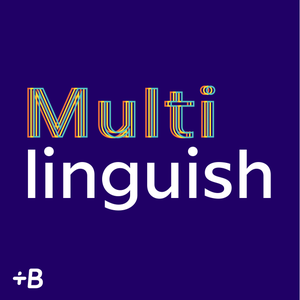
Multilinguish
Babbel USA
Not multilingual, but language curious? Explore how language connects us all — from the producers at the language-learning app Babbel. Listen and subscribe today.
- 28 minutes 31 secondsThe Story Of English
Is it possible to tell the whole history of a language in under half an hour? In this episode, we try our best. In the season finale, the whole Multilinguish team gets together to focus on five key moments in English language history, from its start as Proto-Indo-European to its role as a global lingua franca today. We explore how humans changed language, and how language changed us.
For more info about what we discussed in this episode, visit Babbel Magazine: babbel.com/en/magazine/multilinguish-the-story-of-english
Get 50% off a 3-month Babbel subscription by visiting babbel.com/coupons/new and using the code MULTI
6 April 2021, 12:57 pm - 44 minutes 40 secondsEasiest And Hardest Languages
Which language should you learn? It can be hard to decide between so many incredible options, but we have a few in particular for you to consider. In this episode, our language experts reveal the top 3 easiest and hardest languages (in their humble opinion) for English speakers to learn. We discuss what makes these languages particularly easy or challenging and why they're worth taking the time to learn regardless.
Special thanks to Elin Asklöv and Ted Mentele for lending their insight on this episode.
For more info about what we discussed in this episode, visit Babbel Magazine: babbel.com/en/magazine/multilinguish-easiest-hardest-languages
Get 50% off a 3-month Babbel subscription by visiting https://www.babbel.com/coupons/new and using the code MULTI
23 March 2021, 1:00 pm - 45 minutes 1 secondThe Brothers Grimm: Between The Lines
Most of us are familiar with the folktales of the Brothers Grimm, from Cinderella to Sleeping Beauty to Snow White. But how much do you know about the impressive legacies of the men behind these magic and mysterious stories? In this episode, we dive into the work of Jakob and Wilhelm Grimm — not only as collectors of generations of oral tradition but also as linguists and language scholars whose near-lifelong dedication to the German people and their language contributed to the flourishing of the German national spirit from a linguistic lens.
For more info about what we discussed in this episode, visit Babbel Magazine: babbel.com/en/magazine/multilinguish-the-brothers-grimm/
Get 50% off a 3-month Babbel subscription by visiting https://www.babbel.com/coupons/new and using the code MULTI.
9 March 2021, 2:17 pm - 40 minutes 20 secondsLies Your Language Teacher Told You
Early education is designed to set you up for success, but it also often sets you up for a certain amount of disillusionment as you get older. The language classroom is no exception. In this episode, we talk about what makes language learning so different as an adult when you're free to self-direct your own process. Then, we deliver a rousing exposé on the biggest lies our language teachers personally told us.
For more info about what we discussed in this episode, visit Babbel Magazine: babbel.com/en/magazine/multilinguish-language-myths/
Get 50% off a 3-month Babbel subscription by visiting babbel.com/coupons/new and using the code MULTI.
23 February 2021, 2:16 pm - 19 minutes 45 secondsAre We Born With Language?
How do babies learn languages? We don't know for sure. One of the leading theories is Universal Grammar, which is the idea that humans are genetically predisposed to acquire languages, but not all linguists agree on this. In this episode, we talk about this theory, its originator Noam Chomsky and why Universal Grammar has become one of the most divisive topics in linguistics.
Special thanks to Jennifer Dorman for her help and insight on this episode.
For more info about what we discussed in this episode, visit Babbel Magazine: babbel.com/en/magazine/multilinguish-universal-grammar
Get 50% off a 3-month Babbel subscription by visiting https://www.babbel.com/coupons/new and using the code MULTI.
9 February 2021, 5:31 pm - 41 minutes 34 secondsTalking To Animals
If you're like us, you love the idea of being able to communicate with animals. But how realistic is this dream? From prairie dogs to dolphins to Koko the Gorilla, we look at the surprisingly complex language animals use with each other and attempts to teach them human language.
Special thanks to Con Slobodchikoff for taking the time to speak with us for this episode.
For more info about what we discussed in this episode, visit Babbel Magazine: babbel.com/en/magazine/multilinguish-animal-language/
Get 50% off a 3-month Babbel subscription by visiting babbel.com/coupons/new and using the code MULTI.
26 January 2021, 2:07 pm - 36 minutes 39 secondsYour Brain On Language
What exactly goes on in your head when you're speaking a language? What happens when you learn a new one, or forget your mother tongue as you age in another country? Does reading Braille require different parts of your brain than reading text on a page? Why does the aphasia patient sing? In this episode, we’ll deconstruct the parts of the brain that make language possible by quite literally bringing them to life.
For more info about what we discussed in this episode, visit Babbel Magazine: babbel.com/en/magazine/multilinguish-your-brain-on-language
Get 50% off a 3-month Babbel subscription by visiting https://www.babbel.com/coupons/new and using the code MULTI.
12 January 2021, 2:10 pm - 33 minutes 29 secondsBonus: Words Of The Year 2020
Every year, dictionaries and language organizations around the world choose a word that they think best sums up the previous 12 months. In 2020, there were a few obvious choices. But rather than spending the whole time talking about coronavirus, we go beyond the top words and look at all of the terms and phrases that defined a historic year.
For more info about what we discussed in this episode, visit Babbel Magazine: babbel.com/en/magazine/multilinguish-words-of-the-year-2020
Get 50% off a 3-month Babbel subscription by visiting https://www.babbel.com/coupons/new and using the code MULTI.
29 December 2020, 2:49 pm - 37 minutes 30 secondsThe World Of, Um, Filler Words
You've probably been told countless times to avoid "like," "um" and "uh" in your speech. But these words may serve more of a linguistic purpose than many of us realize. In this episode, we look at the science behind using these filler words in conversation to find out why they're actually, um, like, normal. And we take a look at how they appear in languages across the world.
Special thanks to James Douglas for taking the time to speak with us for this episode.
For more info about what we discussed in this episode, visit Babbel Magazine: babbel.com/en/magazine/multilinguish-filler-words
Get 50% off a 3-month Babbel subscription by visiting https://www.babbel.com/coupons/new and using the code MULTI.
15 December 2020, 2:44 pm - 1 minute 18 secondsSeason 3: Coming Soon!
Buckle up for season 3 of Multilinguish – coming this winter to a podcast feed near you. This season, Babbel's content team brings you fun facts and fascinating conversations about animal languages, filler words, the Brothers Grimm, how language-learning works in the brain, and much more. Subscribe now!
Learn more about Multilinguish here: https://www.babbel.com/en/magazine/language-linguistics-podcast-multilinguish
10 November 2020, 2:19 pm - 20 minutes 7 secondsBONUS: Elon Musk's Language Prophecy (At Home)What are the cutest English words? We have some thoughts. Plus, we tell you why Elon Musk's wild predictions about language are probably wrong, and share some of your submissions on how you're using language during quarantine.
Get 50% off a 3-month Babbel subscription by visiting babbel.com/podcast and using the code MULTI.19 May 2020, 1:27 pm - More Episodes? Get the App
Your feedback is valuable to us. Should you encounter any bugs, glitches, lack of functionality or other problems, please email us on [email protected] or join Moon.FM Telegram Group where you can talk directly to the dev team who are happy to answer any queries.
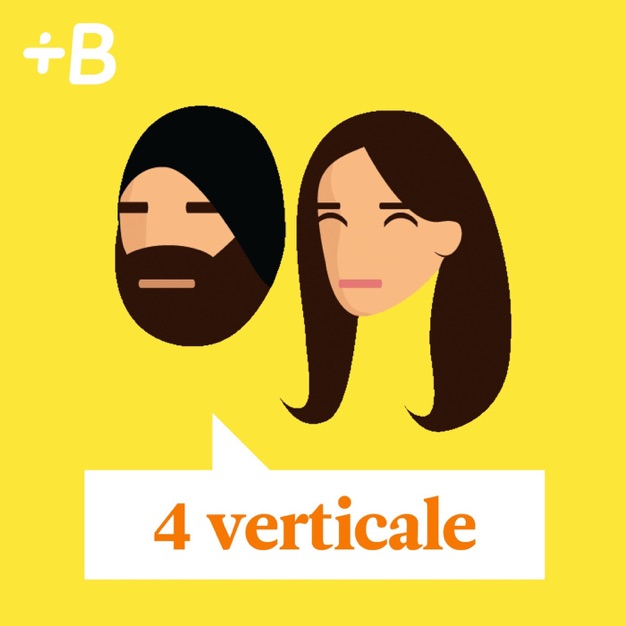 4 verticale
4 verticale
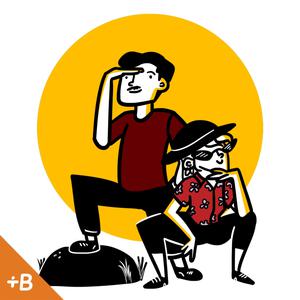 Habitantes Babbel
Habitantes Babbel
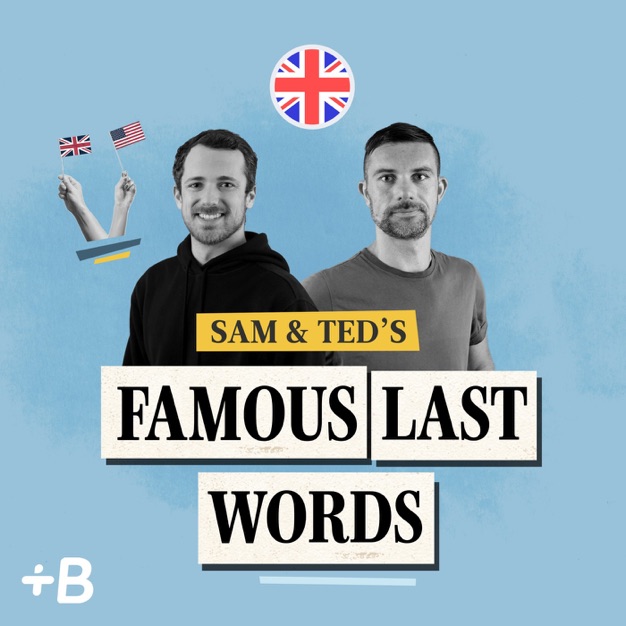 Sam and Ted's Famous Last Words
Sam and Ted's Famous Last Words
 Parlez Away
Parlez Away
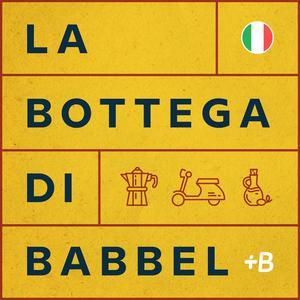 La bottega di Babbel
La bottega di Babbel